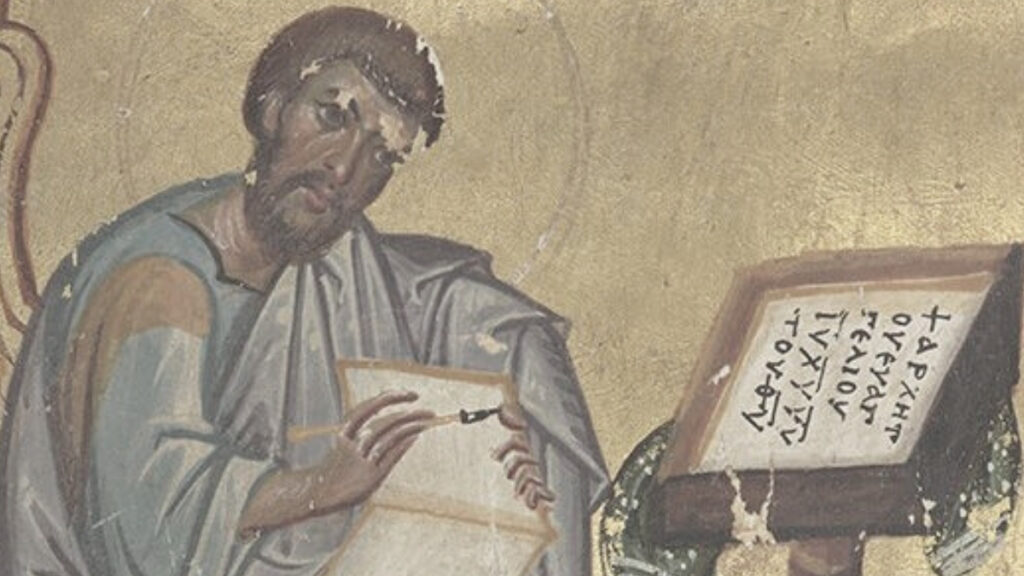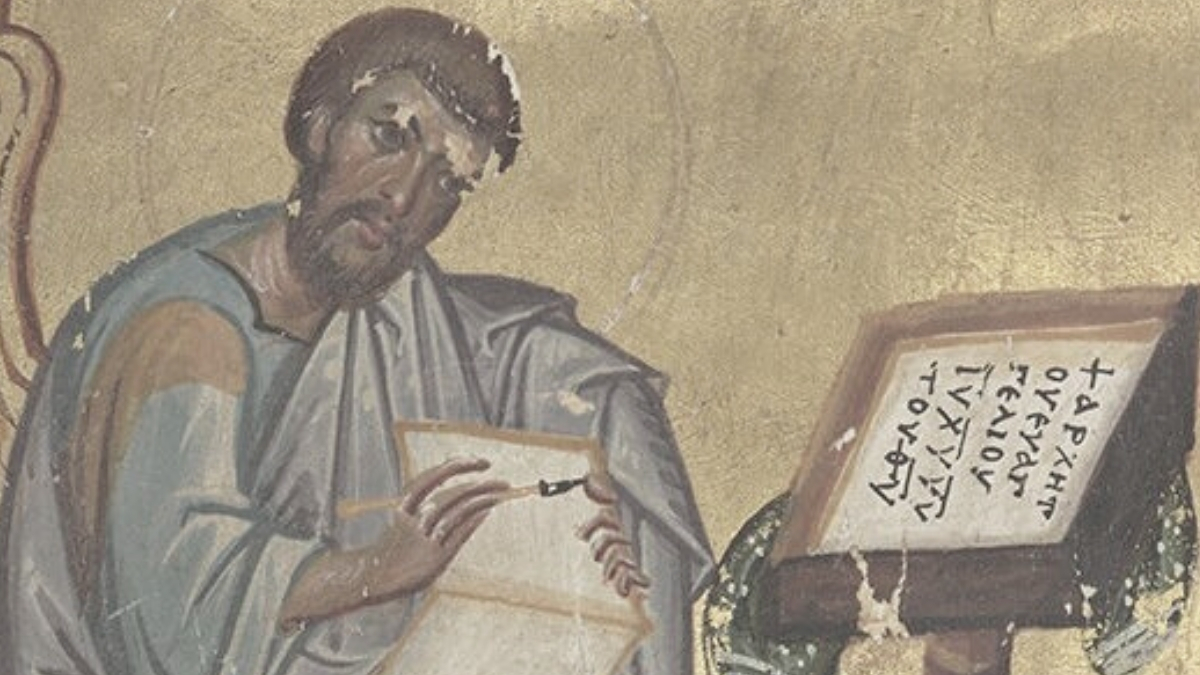
Unveiling the First Writer of the Bible: Exploring Authorship and Tradition
The question of who was the first writer of the Bible is complex and doesn’t have a simple, universally agreed-upon answer. Unlike modern books with clearly identified authors, the Bible is a collection of texts written, compiled, and edited over centuries by various individuals and communities. Determining the absolute first writer of the Bible requires understanding the historical context of its formation and the different traditions surrounding its authorship.
The Pentateuch and the Tradition of Moses
Traditionally, the first five books of the Bible, known as the Pentateuch (Genesis, Exodus, Leviticus, Numbers, and Deuteronomy), are attributed to Moses. This attribution is deeply rooted in Jewish and Christian traditions. These books recount the creation of the world, the story of Noah, the covenant with Abraham, the Exodus from Egypt, the giving of the Law at Mount Sinai, and the wanderings of the Israelites in the wilderness. The figure of Moses looms large throughout these narratives, making him a natural candidate for the first writer of the Bible according to this perspective.
Deuteronomy, in particular, presents itself as Moses’s farewell address to the Israelites before his death. Within the Pentateuch, there are passages that explicitly state Moses wrote down certain events or laws. For example, Exodus 24:4 states, “And Moses wrote down all the words of the Lord.” Exodus 34:27 also attributes writing to Moses: “Then the Lord said to Moses, ‘Write these words, for in accordance with these words I have made a covenant with you and with Israel.'”
However, modern biblical scholarship approaches the Mosaic authorship of the Pentateuch with nuance. While acknowledging the significant role of Moses in the formation of Israelite tradition and law, many scholars argue that the Pentateuch as we have it today is the result of a long process of compilation and editing that extended well beyond Moses’s lifetime. This doesn’t necessarily negate the possibility that Moses wrote some of the earliest texts or provided the foundational material, but it suggests that later authors and editors contributed to the final form of the Pentateuch.
Documentary Hypothesis: Unraveling the Sources
The Documentary Hypothesis is a prominent theory in biblical scholarship that attempts to explain the composition of the Pentateuch. It proposes that the Pentateuch is a composite work derived from four main independent sources, often referred to as J (Yahwist), E (Elohist), P (Priestly), and D (Deuteronomist). Each source is believed to have its own distinct style, theological perspective, and historical context.
- J (Yahwist): This source is characterized by its vivid storytelling, anthropomorphic depictions of God, and use of the name Yahweh (Jehovah) for God. It is generally dated to the 10th or 9th century BCE.
- E (Elohist): This source tends to use the name Elohim for God and often emphasizes prophecy and the fear of God. It is generally dated to the 9th or 8th century BCE.
- D (Deuteronomist): This source is primarily associated with the Book of Deuteronomy and emphasizes covenant, law, and centralization of worship. It is generally dated to the 7th century BCE.
- P (Priestly): This source focuses on priestly matters, rituals, genealogies, and legal codes. It is generally dated to the 6th or 5th century BCE.
According to the Documentary Hypothesis, these four sources were eventually combined and edited together to form the Pentateuch as we know it. If this theory is correct, then the question of the first writer of the Bible becomes even more complex. Instead of a single author (Moses), we would have multiple authors contributing to the earliest biblical texts. The Yahwist (J) is often considered the earliest of these sources, making the author of J a potential candidate for the first writer of the Bible, at least in terms of the Pentateuch.
Beyond the Pentateuch: Other Potential Candidates
While the Pentateuch is traditionally considered the beginning of the Bible, it’s important to remember that other texts may have been written earlier. The Book of Job, for example, is often considered one of the oldest books in the Bible, although its dating is debated. Some scholars suggest that parts of the prophetic books, such as Amos or Hosea, may also predate the final compilation of the Pentateuch. If these texts do predate the Pentateuch, then the first writer of the Bible might be someone other than Moses or the author of the J source.
Furthermore, the Bible draws upon older oral traditions and written sources that are no longer extant. These sources may have contained stories, poems, or legal codes that predated the biblical texts we have today. Unfortunately, we have no direct access to these sources, so it’s impossible to identify the individuals who created them.
The Importance of Understanding Authorship
Understanding the authorship of the Bible is crucial for interpreting its meaning and significance. Knowing the historical context, theological perspective, and literary style of the first writer of the Bible, or any biblical author, can shed light on the message they were trying to convey. It can also help us understand how the Bible has been interpreted and used throughout history.
For example, if we believe that Moses was the sole author of the Pentateuch, we might interpret its laws and narratives as directly reflecting the will of God as revealed to Moses. On the other hand, if we accept the Documentary Hypothesis, we might interpret the Pentateuch as a product of multiple authors and editors, each with their own agenda and perspective. This can lead to a more nuanced understanding of the text and its complexities.
Conclusion: A Complex and Ongoing Inquiry
In conclusion, identifying the first writer of the Bible is a challenging and complex task. While tradition attributes the Pentateuch to Moses, modern biblical scholarship suggests a more nuanced picture of multiple authors and editors contributing to the earliest biblical texts. The Documentary Hypothesis points to the Yahwist (J) as a potential candidate, but other texts and lost sources may also predate the Pentateuch. Ultimately, the question of the first writer of the Bible remains open to debate and further research. What is clear is that understanding the authorship of the Bible is essential for interpreting its meaning and significance. The first writer of the Bible may be lost to history, but their legacy lives on in the foundational texts that have shaped Western civilization.
The quest to pinpoint the first writer of the Bible highlights the collaborative and evolving nature of scripture. It wasn’t the work of a single individual in a vacuum, but rather a collection of voices, perspectives, and traditions woven together over time. This understanding enriches our appreciation for the Bible’s complexity and its enduring relevance. Further study into the historical and literary contexts of the Old Testament can provide even deeper insights into the origins and development of these foundational texts. Considering the various theories and perspectives surrounding the first writer of the Bible allows for a more comprehensive and informed understanding of the text’s origins and impact. The search for the first writer of the Bible continues, fueled by scholarly inquiry and a desire to understand the roots of our religious and cultural heritage. Understanding the possible identities of the first writer of the Bible and their context is crucial for interpreting the text. Many believe that Moses was the first writer of the Bible, but scholarly debate continues. Regardless of who the first writer of the Bible was, their contribution is undeniably significant. Therefore, the identity of the first writer of the Bible will likely remain a topic of discussion and research for years to come. The legacy of the first writer of the Bible endures through the stories and teachings that have shaped countless lives. The impact of the first writer of the Bible resonates through history and continues to influence our understanding of faith and morality.
[See also: The Historical Accuracy of the Bible]
[See also: The Development of the Old Testament Canon]
[See also: Understanding Biblical Authorship]

